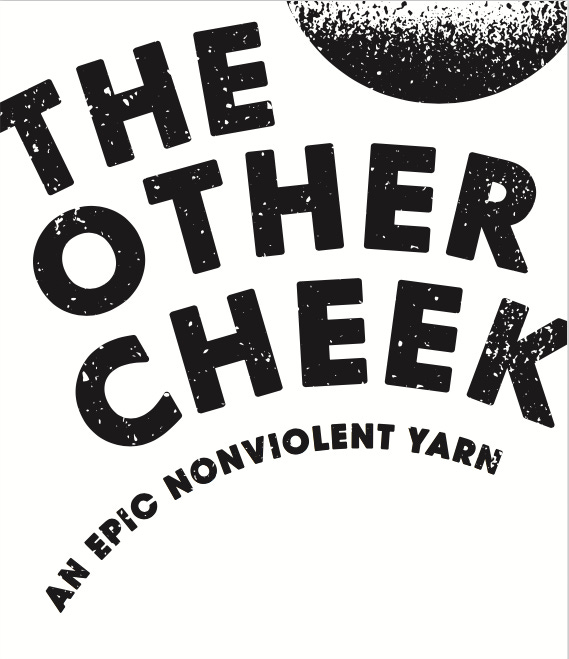
In one sense, the title of this newsletter is wrong—even offensively wrong. That’s because many of the crucial years lie in our past. Last week, for the first time in quite a while, I was leafing through my 1989 book The End of Nature, and it was a grim reminder of just how much we knew back then: not just the basic science, but even what it would feel like. Here’s a sentence that jumped out at me:
“Summer will come to mean something different—not the carefree season anymore, but a time to grit one’s teeth and survive.”
I think, with Louisiana underwater and Lake Tahoe choked in smoke, we’ve reached that point. The years we’ve wasted haunt me.
But there’s only so much crying to do over spilled carbon. We are where we are, and it’s a hard, hot place. We’ve already raised the temperature of the planet more than a degree Celsius, fundamentally disrupting the jet stream, the Gulf Stream, and earth’s hydrological cycle. Stopping global warming is no longer on the menu.
Two things are still possible, however—two vast tasks that will be the main focus of this newsletter, each of which depends on massive action over the next few years.
1) By rapidly deploying renewable energy on a huge scale, we can start to flatten the carbon curve and hold temperature increases as far below two degrees Celsius as possible. That will still be miserable, but perhaps our civilizations can survive it.
2) We can increase the chances of that survival by simultaneously building a fairer, less polarized world—by building solidarity within countries and among them.
I’ll try to highlight what seem to me the most important developments, and rally people for the most important fights. I make no claim to special insight: truth be told, I don’t think you need a great deal of insight to understand the basic situation, which is that we must rapidly overcome inertia and vested interest. But—because I wrote the first book about all of this back when I was 28, and because I helped organize the first big global grassroots movements to confront it—I do come equipped with a certain amount of perspective which I hope will be useful. You come with important gifts too, so I hope you’ll join in!
A note about money, which is also a note about movement-building. This is a free newsletter; we’re in a crisis, and in a crisis information should be available to everyone. If you can’t afford to pay $60 a year to support it, do not worry for a minute. In fact, let me go further: if paying that money is a hardship in any way—if it will cause you to skip things that are important to you—then do not even think about paying it. Conversely, if you’re able to pay I hope you will, because it will sustain this effort over the long run. Think of it as an honor box, or community supported journalism.
At least for the first year, my share of the subscription revenue will be used to support a nascent organizing effort that we’re calling Third Act. This is an attempt to organize people over the age of 60—I think it’s as vital that the Boomers and the Silent Generation join this fight in force as it has been to watch the incredible work of youth organizers and of frontline communities. Some of this work is underway already—check out, for instance, Elders for Climate Action or Great Old Broads for Wilderness. But we need far more—lots of the world’s financial and political power has accumulated in these generations, and it needs to be deployed. (If you’re of the right age and want to play a part in getting Third Act off the ground, or if your parents or grandparents might want to hear about it, we have a rudimentary ‘splash page’ up on the web where you can join in—don’t expect an instant response; this is a fairly homemade operation, though we’re grateful for the backing of Bernie, Greta, and many others who have heard about it so far).
The sales experts contend—correctly I’m sure—that it’s important to offer a bonus to newsletter subscribers. I don’t want to wall off any information—again, this is the most serious crisis humans have ever faced. But I do have a small premium that some people might enjoy. My pandemic hobby did not involve learning to make sourdough bread; instead, I finally finished off a long and wandering tale that I’ve been working on for years. I hesitate to call it a novel—perhaps “yarn” would be more descriptive. It’s a prequel/sequel in certain ways to the only other fiction I’ve ever published, a freakishly popular little volume called Radio Free Vermont. This one is called The Other Cheek, and it spans the globe, constituting my effort to see if movement building can be made as dramatic as the violence we normally enjoy; think of it as a superhero adventure where the superheroes have no special powers. In any event, if you pay to subscribe to this newsletter, you’ll get another little chunk of The Other Cheek every week—that is, in Dickensian fashion it will come as a serial. If you can’t afford to subscribe and you still want to read it, don’t worry: I’ll give it away to everyone once all the installments are out in the world.
There are, thank heaven, now a thousand other wonderful writers and journalists working the climate beat: perhaps more than anyone else I welcome their work, because I remember how lonely this space was for so long. If I have anything left to offer, it’s probably by synthesizing and highlighting—by organizing information in ways that might help organize people. I hope you’ll join this particular community of readers. These are the crucial years that we have left, and given that time is short, our actions need to be as smart and focused as possible. I hope this newsletter will help.






Thank you Bill. I'm so glad to see your new move.
It would be interesting to have a unique hashtag to identify posts in solidarity with your new venture/s.
#CrucialYears and #ThirdAct come to mind, but I never finished my advertising course. Maybe something more obviously directed toward our movement but still unique . . .
<3
Bill, thank you for The Crucial Years and The Third Act. Many of us Americans 60 and older played a big role in putting lots of carbon emissions into the atmosphere. It's our responsibility to join young people to work together for positive political and corporate action on climate change. Let's make it happen!